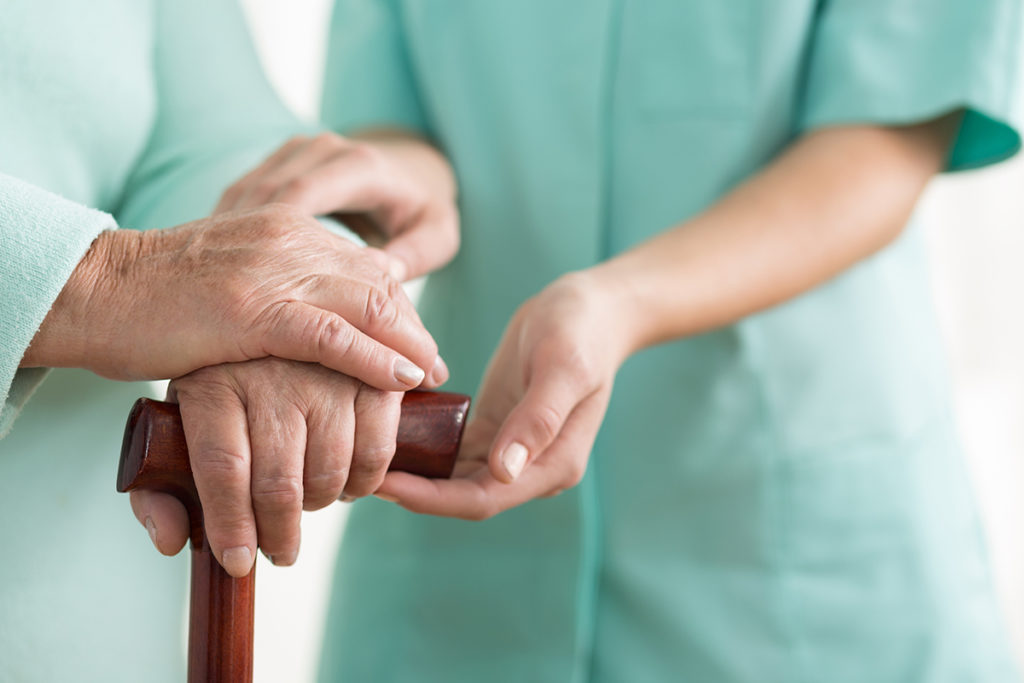
The DFW Hospital Council is posting blogs submitted by our Associate Members. The following was provided by Honor Home Care. For guidelines, please contact Chris Wilson at chrisw@dfwhc.org.

Non-Medical Home Care
Alice arrived in the emergency room today by ambulance after fainting just four days post-discharge. The emergency room staff recommended readmission as she was dehydrated, very weak and disoriented. What went wrong?
Alice did not qualify for skilled nursing care at discharge. So, the 74-year-old was sent home in a de-conditioned state with balance problems, vision issues, eight medications and a referral to home health. Home health had approved Alice for care, but the first home visit had not yet occurred. Alice’s only household support was provided by her loving, but ailing 78-year-old husband. Alice simply did not get the help she needed at home with wellness basics.
How many times a week does this situation present itself in your hospital?
It happens with troubling frequency in Dallas-Fort Worth, according to the Central Dallas Coalition of the TMF Quality Innovation Network-Quality Improvement Organization (QIN-QIO). Its tracking data revealed that over 60 percent of Medicare patients discharged home return to the hospital within 14 days, 38.2 percent within 7 days or less, and 26.6 percent between eight and 14 days.
Would integrating non-medical home care into discharge plans reduce the rates of unnecessary readmissions?
“Lack of consistent, home-based support with activities of daily living can lead to a regression of patient progress made in the hospital or with other post-acute services,” says Ron Greeno, MD, founder of Cogent Healthcare, TeamHealth Senior Advisor for Medical Affairs, and an Advisor to Honor, a non-medical home care provider serving Dallas-Fort Worth as well as San Francisco, Los Angeles and Albuquerque.
“Non-medical home care is a valuable option for patient support, which is often overlooked by hospital discharge planners and social workers, primarily because it’s not funded by government programs,” says Greeno. “But quality home care can be critical to supporting patient needs like medication reminders, continued mobility, and making it to follow-up physician visits.”
Despite these issues, there is still a lack of awareness about non-medical home care as well as the benefits to patient outcomes post discharge. Non-medical home care, also called private duty or personal care, helps discharged patients with activities of daily living (ADLs) and provides support for family caregivers in the home. Home care can supplement home health and hospice services while supporting the goal to reduce unnecessary re-hospitalization.

Non-medical home care typically includes reminders to ensure medication compliance, transportation to and from follow-up physician appointments, help with daily walks or completing rehab exercises, grocery shopping and meal preparation to encourage proper nutrition, and assistance with personal care, toileting, and bathing, plus companionship to avoid isolation.
“Hospitals and health systems tell us they want reliable, quality home care partners to extend their care team into the patient’s home, providing appropriate support and also reporting wellness insights.” said Seth Sternberg, CEO of Honor. “Honor has partnerships with several health systems, post-acute organizations, and non-medical home care companies. The learning from these partnerships has been incredible and led to improvements in patient care.”
Learning from Honor’s existing partnerships, the requirements of health systems and managed care, plus a deep understanding of the challenges that home care companies face today, has sparked an entirely new concept, the Honor Care Network.
Launched in November, the Care Network enables Honor to share its advanced operational capabilities and sophisticated technology with partners along the care continuum, delivering in-home care with exceptional quality and reliability. The Care Network offers operational support to other independent home care companies and also provides excellent non-medical home care service with measurable outcomes.
Adding non-medical home care services to the discharge planning process could have helped Alice. The Honor Care Network can help prevent this outcome by providing non-medical care at home to support patients and their families.
Call Mike Boggs, Honor’s DFW General Manager, at 817-975-6854, to learn more about how the Honor Care Network can help serve the needs of your patient population and your organization’s goals.
Honor Home Care – Managing home recovery and readmissions
02/23/2018